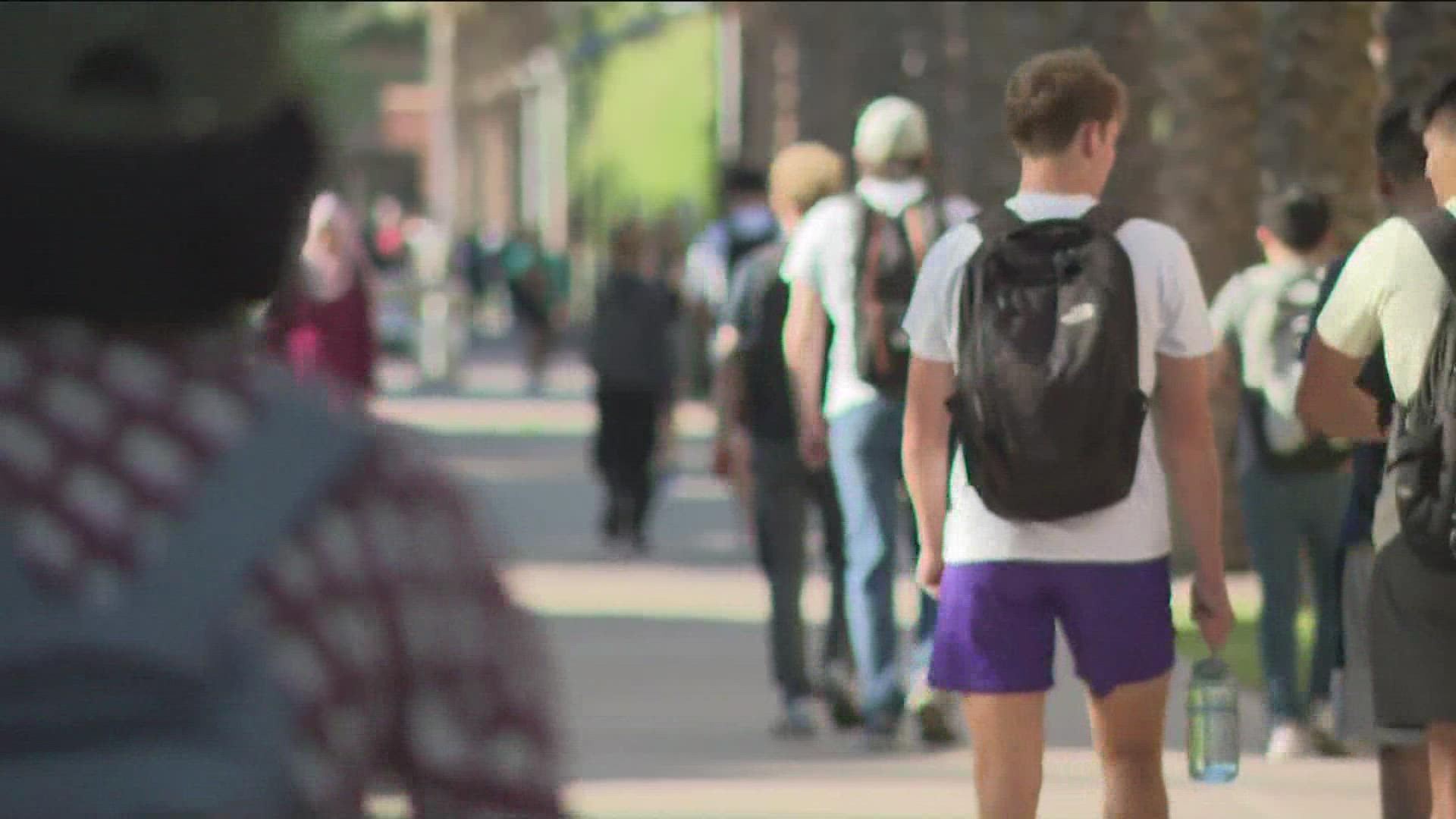PHOENIX — It’s that time of year when parents send their kids off to college and must decide how closely to monitor their child’s newfound freedom. New research suggests young adults are more likely to be negatively impacted by over-involved parents, despite good intentions.
“We found overwhelming evidence that helicopter parenting is associated with negative consequences of emerging adult children’s development,” said Ming Cui, professor of human development and family science at Florida State University.
Parents should avoid intervening in conflicts
Cui and her colleagues analyzed more than 70 peer-reviewed studies over the past two decades regarding “helicopter parenting” of emerging adult children. “Emerging adulthood” is defined as the developmental stage of young people ages 18-29.
Published in June in the Journal of Emerging Adulthood, the article found young adults who feel suffocated by their parents’ influence are more likely to experience elevated depressive and anxiety symptoms, greater alcohol and substance use, lower levels of educational achievements and more social and relational problems.
“When parents try to stay too close and do too much, such as telling their children what courses they should take, calling their instructors to complain about their poor grades, or interfering with minor roommate disputes, (it) could discourage independence and critical skill attainment of their children, which lead to maladjustment in college,” Cui said.
There are no “absolute” rules regarding a parent’s involvement in their child’s life, Cui said, but parents should allow their child to attempt to resolve challenges they face before considering getting involved.
“They need independence and they need critical skill attainment, so let them handle problems by themselves first so they have the opportunity to learn,” Cui said. “And if they can’t handle it, the parents certainly at some point can help.”
Technology allows for constant communication, for better or worse
Social media and cell phone tracking apps allow parents to monitor their children’s actions on a day-to-day basis.
“She (my mom) tracks my phone. So she knows when I go to the gym and she will text me, so that’s kind of weird,” said Nathan, a freshman from Illinois attending Arizona State University.
ASU freshman Ellie Sagehorn said her parents call her nearly every night since she moved on campus.
“It’s a little annoying but they’re catching up on life and they want to know how I’m doing,” Sagehorn said.
New social media applications and a variety of media devices are “changing communication patterns and parent-child interactions”, Cui said. She suggests parents should discuss with their children what level of contact is appropriate. For example, some parents want to have the option to track their child’s cell phone location for safety purposes.
Conversely, many college students rely on the ability to communicate with their parents at a moment’s notice.
“In a study, we did with a sample of 393 college students, we asked how often they ‘call,’ ‘text,’ or ‘connect over the internet’ with their parents, and over 65% reported contact with their parents at least once a day,” Cui said.
Studies show communication between children and their parents during stressful times may also provide a protective factor for the child’s mental health, Cui said.
“Effective parental communication and supportive parental relationships are certainly beneficial for emerging adult children or college students,” Cui said.
American parents may tend to be more involved
Cui’s research also found the level of helicopter parenting in the U.S. is higher compared to Finland. One reason might be that American parents are more financially invested in their child’s college education because the cost to attend college in the U.S. is much higher compared to other countries.
“I certainly understand that and I feel there should be some kind of discussion and mutual agreement (about involvement),” Cui said.
For example, parents may want to have access to their child’s online academic portal to track their grades.
ASU freshman Cameron is from Indiana. She said her parents don’t track her phone location and don’t have access to her online account.
“We have a trust system and if I need help, they know I will reach out to them,” she said.
The research found there’s no one-size-fits-all approach to parenting a college student.
For example, one study examining the drinking behavior of emerging adults found that “overparenting” was a risk factor for young adults from high-income families, but it was a protective factor for young adults from low-income families.
Up to Speed
Catch up on the latest news and stories on our 12 News YouTube playlist here.

